Black History Month, February 2023
Departmental News
Posted: Feb 01, 2023 - 12:00pm
The UNM celebrates Black History Month (also known as African American History Month), February 2023. Click on the red links below for more information. Scroll down to read about events, Black scholars, the history of Black History Month, research, news and organizations.
UNM Department of Africana Studies
"The Africana Studies Program at the University of New Mexico gives students of all races, ethnicities, genders, and backgrounds a full understanding of the global linkages between peoples of Africa and other African descended people in the Southwest, the contiguous United States, and throughout the Black Diaspora in Mexico, Latin America, and the Caribbean. Africana Studies provides an excellent university experience in a discipline that investigates African descended peoples' experiences from the perspective of their interests, aspirations, possibilities, and envisioned destinies."
Dr. Garnett S. Stokes, President of UNM, writes "In 1970, following the lead of our students, faculty, and staff, UNM created its Afro Studies program, as it was called then, which was the first ethnic studies research program at UNM, and it remains one of the oldest Black studies programs in the nation.
Over the next decade, Afro Studies would grow and evolve, becoming African American Studies in 1982, and then a degree-granting program in 1993. Designated today as the Africana Studies Program, the program is in its sixth remarkable decade of facilitating academic freedom of Black faculty and building Africana, African Diaspora, and African American Studies as viable and vibrant academic disciplines. I am delighted that it is soon to become its own department, and I want to welcome and congratulate Dr. Kirsten Buick, who is presently serving as the interim director of Africana Studies and will soon step into the notable role as The University of New Mexico’s inaugural chair of our Africana Studies Department." President's Weekly Perspective, 1/31/2022
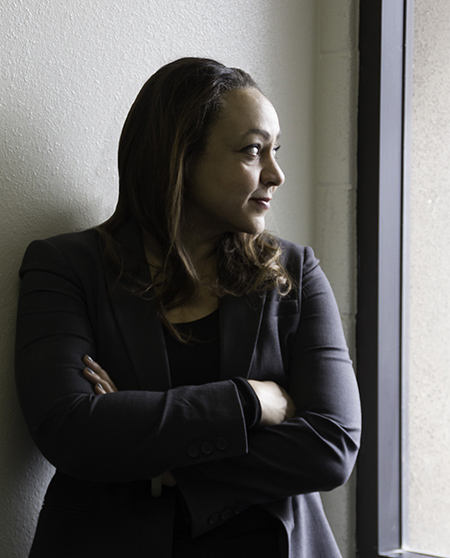 "Dr. Kirsten Pai Buick, [Department Chair of the Department of Africana Studies], is a professor of art history at the University of New Mexico where she has taught since 2001. She was a SAAM Predoctoral Fellow and a Charles Gaius Bolin Fellow at Williams College. Her recent publications have appeared in exhibition catalogs for artists such as Deborah Roberts, Augusta Savage, and an essay on Renee Stout that appears in the catalog for the VMFA exhibition “The Dirty South: Contemporary Art, Material Culture, and the Sonic Impulse.” Her work has been included in anthologies such as The Routledge Companion to African American Art History edited by Eddie Chambers; and in Race and Vision in the Nineteenth Century edited by Shirley Samuels. She lectures nationally and internationally. Buick is a recipient of the David C. Driskell Prize for African American Art and was named Distinguished Scholar by the College Art Association for 2022. She has published extensively on African American art, including her book Child of the Fire: Mary Edmonia Lewis and the Problem of Art History’s Black and Indian Subject (Duke Univ. Press, 2010). Her second book, In Authenticity: “Kara Walker” and the Eidetics of Racism, is in progress." Read more
"Dr. Kirsten Pai Buick, [Department Chair of the Department of Africana Studies], is a professor of art history at the University of New Mexico where she has taught since 2001. She was a SAAM Predoctoral Fellow and a Charles Gaius Bolin Fellow at Williams College. Her recent publications have appeared in exhibition catalogs for artists such as Deborah Roberts, Augusta Savage, and an essay on Renee Stout that appears in the catalog for the VMFA exhibition “The Dirty South: Contemporary Art, Material Culture, and the Sonic Impulse.” Her work has been included in anthologies such as The Routledge Companion to African American Art History edited by Eddie Chambers; and in Race and Vision in the Nineteenth Century edited by Shirley Samuels. She lectures nationally and internationally. Buick is a recipient of the David C. Driskell Prize for African American Art and was named Distinguished Scholar by the College Art Association for 2022. She has published extensively on African American art, including her book Child of the Fire: Mary Edmonia Lewis and the Problem of Art History’s Black and Indian Subject (Duke Univ. Press, 2010). Her second book, In Authenticity: “Kara Walker” and the Eidetics of Racism, is in progress." Read more
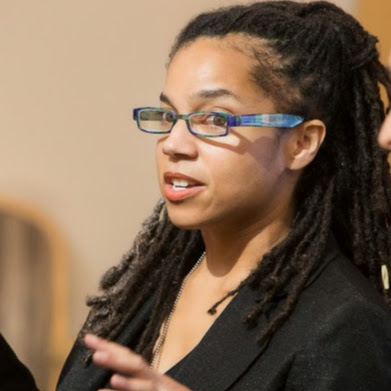 "Professor Kathy Powers is an Associate Professor of Political Science [and Associate Chair of the Department of Africana Studies] at the University of New Mexico. She is interested in the nature of institutional authority as well as institutional change and effects. Much of her present research focuses on the design of international institutions and law with respect to human rights, restorative justice, trade, and war. Specifically, she examines the institutional and legal determinants of transitional justice in the form of global reparations efforts following mass human rights violations, the international legal personality of international organizations, and how regional economic institutions that transform into military organizations impact war....She was recently awarded multiple fellowships to conduct research for her book Making Amends: The Institutional and Legal Landscape of Global Reparations while in residency at the United States Holocaust Memorial Museum and at the Woodrow Wilson Center for International Scholars in Washington, D.C.... An international relations scholar, Powers’ project at the Wilson Center was "Violence and Victim Redress - Understanding the Causes of Reparations: Bosnia and Herzegovina Transitional Justice Efforts in the Aftermath of Civil Conflict." Read more
"Professor Kathy Powers is an Associate Professor of Political Science [and Associate Chair of the Department of Africana Studies] at the University of New Mexico. She is interested in the nature of institutional authority as well as institutional change and effects. Much of her present research focuses on the design of international institutions and law with respect to human rights, restorative justice, trade, and war. Specifically, she examines the institutional and legal determinants of transitional justice in the form of global reparations efforts following mass human rights violations, the international legal personality of international organizations, and how regional economic institutions that transform into military organizations impact war....She was recently awarded multiple fellowships to conduct research for her book Making Amends: The Institutional and Legal Landscape of Global Reparations while in residency at the United States Holocaust Memorial Museum and at the Woodrow Wilson Center for International Scholars in Washington, D.C.... An international relations scholar, Powers’ project at the Wilson Center was "Violence and Victim Redress - Understanding the Causes of Reparations: Bosnia and Herzegovina Transitional Justice Efforts in the Aftermath of Civil Conflict." Read more
The University of New Mexico Africana Studies Department Celebrates Black History Month
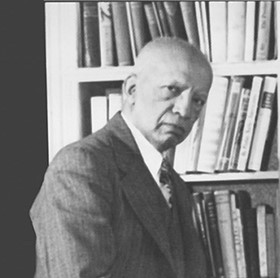 "In 1926, Harvard educated historian, Dr. Carter G. Woodson, ushered into the American experience a celebration of the accomplishments of Black Americans under the banner: Negro History Week. Woodson, always one to act on his ambitions, decided to take on the challenge of writing black Americans into the nation's history. He established the Association for the Study of Negro Life and History (now called the Association for the Study of Afro-American Life and History) in 1915, and a year later founded the widely respected Journal of Negro History. In 1926, he launched Negro History Week as an initiative to bring national attention to the contributions of black people throughout American history. Woodson chose the second week of February for Negro History Week because it marks the birthdays of two men who greatly influenced the black American population, abolitionist, Frederick Douglass, and former US president, Abraham Lincoln. Since 1976, Black History Month has been celebrated from February 1 to February 28th across the United States and Canada." The University of New Mexico Africana Studies: Why we Celebrate Black History Month
"In 1926, Harvard educated historian, Dr. Carter G. Woodson, ushered into the American experience a celebration of the accomplishments of Black Americans under the banner: Negro History Week. Woodson, always one to act on his ambitions, decided to take on the challenge of writing black Americans into the nation's history. He established the Association for the Study of Negro Life and History (now called the Association for the Study of Afro-American Life and History) in 1915, and a year later founded the widely respected Journal of Negro History. In 1926, he launched Negro History Week as an initiative to bring national attention to the contributions of black people throughout American history. Woodson chose the second week of February for Negro History Week because it marks the birthdays of two men who greatly influenced the black American population, abolitionist, Frederick Douglass, and former US president, Abraham Lincoln. Since 1976, Black History Month has been celebrated from February 1 to February 28th across the United States and Canada." The University of New Mexico Africana Studies: Why we Celebrate Black History Month
UNM African American Student Services
"The mission of African American Student Services is to recruit, retain, and uplift the Black student population at UNM by providing educational discourse, leadership development, holistic wellness, and community engagement. We support students in realizing their full potential self through collaborative advocacy, intentional allyships, and the exploration of the many facets of Blackness. As an essential resource, AASS contributes to the University’s commitment to a diverse campus culture by appreciating and creating space for Black student scholars to thrive. The vision of African American Student Services “Afro” is to inspire excellence in culture, research, and innovation for Black student scholars at the University of New Mexico." Check out their Black Faculty Spotlights
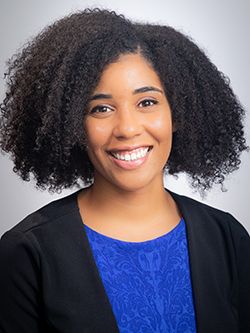 Brandi Stone is the Director of African American Student Services at UNM. "A UNM alumni, Stone received both her BS in Political Science, and her MA in Public Administration. Throughout her seven-year tenure with AASS she has served in numerous capacities beginning in a work-study position and transitioning into various professional roles. As interim director she led the development, expansion, and implementation of undergraduate and graduate programs inclusive of targeted recruitment, first-year mentoring, and research exposure through the annual research symposium. She also worked on retention-based programming including the new Black Minds Matter transition course and the Black Cultural Conference which has gained regional participation from Black scholars and practitioners." She was appointed Director in 2020. Learn more
Brandi Stone is the Director of African American Student Services at UNM. "A UNM alumni, Stone received both her BS in Political Science, and her MA in Public Administration. Throughout her seven-year tenure with AASS she has served in numerous capacities beginning in a work-study position and transitioning into various professional roles. As interim director she led the development, expansion, and implementation of undergraduate and graduate programs inclusive of targeted recruitment, first-year mentoring, and research exposure through the annual research symposium. She also worked on retention-based programming including the new Black Minds Matter transition course and the Black Cultural Conference which has gained regional participation from Black scholars and practitioners." She was appointed Director in 2020. Learn more
New Black History Project honors Dr. Barbara Brown Simmons
"With a swipe of the screen, the history and legacy of the Black experience at The University of New Mexico is now available thanks to a new touchscreen at the African American Student Services office in Mesa Vista Hall. The website touchscreen project Black History at UNM is the result of a collaboration between the AASS and UNM Communications and Marketing Department Web team. “The project came from a need to archive the Black experience at UNM in a way that students can engage with it in real time,” said program director Brandi Stone. “We wanted to expose students to the legacy of our Black community on our campus. We want student to understand the history and lived experiences of those that came before them. We also want to disrupt narratives that don't include the Black experience when talking about the University of New Mexico.” Learn more
Events
February 2 9:30 AM and 2:00 PM The Langston Hughes Project (LHP) features the critically acclaimed McCurdy and award-winning jazz singer Nicole Henry. UNM College of Fine Arts
February 3 10 AM The Langston Hughes Project (LHP) features the critically acclaimed McCurdy and award-winning jazz singer Nicole Henry.UNM Popejoy Hall
February 10 9-2 PM African-American Day at the NM Legislature Santa Fe, NM
February 11 2 PM Miguel Trujillo, NM's Unknown Civil Rights Hero. Jemez Springs Public Library
February 13-March 3 UNM Gallup's Ingham Chapman Gallery Presents Presence: Contributing to the Land of Enchantment (A Selection of Photographs from the Charlie Morissey Museum of the African American Experience in New Mexico)
February 16 12:00 noon The Development of the Charles R. Drew University of Medicine and Science, and the Role of HBCU’s in the Healthcare Workforce Sponsored by the UNM HSC Office of Diversity, Equity, and Inclusion
February 18 6 PM UNM Black Alumni Chapter Awards UNM Hodgin Hall Register in Advance
February 18, 11 am Black Poetry In NM and Beyond presented by Santa Fe Poet Laureate Darryl Wellington. Santa Fe Public Library.
February 21 6 PM Black History Month Trivia Sponsored by the UNM HSC Office of Diversity, Equity, and Inclusion
February 23 12:00 noon What does Critical Race Theory have to do with Academic Medicine? A Primer Sponsored by the UNM HSC Office of Diversity, Equity, and Inclusion
February 23 5 PM Historian Dr. Timothy E. Nelson presents Blackdom, New Mexico: The Significance of the Afro-Frontier in the UNM Hibben Center lecture hall 105. Hosted by the Maxwell Museum of Anthropology.
February 24 5:30-9 PM 2nd Annual Black History Month Meet and Greet Albuquerque Museum RSVP
February 28 2 PM EST Virtual Tour of the Josiah Henson Museum of African-Canadian History Register in advance
March 2 7:30 PM "Step Afrika!" Dance Company Performance Popejoy Hall
UNM African American Student Services sponsors Black History Month Events
UNM Gallup Celebrates Black History Month (in person and virtual)
The International African American Museum (IAAM) hosts a series of virtual programming for Black History Month
Association for the Study of African American Life and History (ASALH) will hold innovative virtual programming in the month of February celbrating THE 2023 BLACK HISTORY THEME: BLACK RESISTANCE
Pritzker Military Museum & Library to Celebrate Black History Month with Free Virtual Programs and Resources
The National Museum of American History hosts online events and exhibits during Black History Month
The United States Holocaust Museum hosts virtual exhibit Special Focus: Black History Month
The United Nations Visitor Center in New York presents Black History Virtual Tours
Visit the Ontario Heritage Trust You Tube page to see videos on Black Heritage
The Maxwell Museum of Anthropology features temporary exhibits honoring Black History Month
The African American Performance Arts Center, Albuquerque NM
Visit the National Museum of African American History and Culture
Eight Online Exhibits to See Right Now on Black History, Racism and Protest
Philadelphia Museum of Art, African American Art (online exhibition)
Google Arts and Culture: Black History Month Collection (online exhibition)
Contemporary Art Gallery Online: Celebrating Black History Month (online exhibition)
The National Portrait Gallery Collection: Portraits of African Americans (online exhibition)
Albuquerque Historical Society presents African American Homesteaders in Albuquerque, NM
Former UNM postdoc Michelle Brown (Asst Professor of Anthropology, UC Santa Barbara) Joins Current UNM PhD Stephanie Fox for a Conversation about Barriers to Diversity and Inclusion in Anthropology Fieldwork:
Dr. Jada Benn Torres (UNM PhD, 2006) Associate Professor Anthropology at Vanderbilt University, presents her research in genetic anthropology; Read her book: Genetic Ancestry: Our Stories, Our Pasts
Black Scholars
 Carter G. Woodson (1875-1950) was a prominent historian who became known as the founder of Black History Month. "After being barred from attending American Historical Association conferences despite being a dues-paying member, Woodson believed that the white-dominated historical profession had little interest in Black history. He saw African-American contributions "overlooked, ignored, and even suppressed by the writers of history textbooks and the teachers who use them." For Black scholars to study and preserve Black history, Woodson realized he would have to create a separate institutional structure. With funding from several philanthropic foundations, Woodson the Association for the Study of Negro Life and History in 1915 in Chicago, describing its mission as the scientific study of the "neglected aspects of Negro life and history." The next year he started the scholarly Journal of Negro History, which is published to this day under the name Journal of African American History." Read more on the NAACP website
Carter G. Woodson (1875-1950) was a prominent historian who became known as the founder of Black History Month. "After being barred from attending American Historical Association conferences despite being a dues-paying member, Woodson believed that the white-dominated historical profession had little interest in Black history. He saw African-American contributions "overlooked, ignored, and even suppressed by the writers of history textbooks and the teachers who use them." For Black scholars to study and preserve Black history, Woodson realized he would have to create a separate institutional structure. With funding from several philanthropic foundations, Woodson the Association for the Study of Negro Life and History in 1915 in Chicago, describing its mission as the scientific study of the "neglected aspects of Negro life and history." The next year he started the scholarly Journal of Negro History, which is published to this day under the name Journal of African American History." Read more on the NAACP website
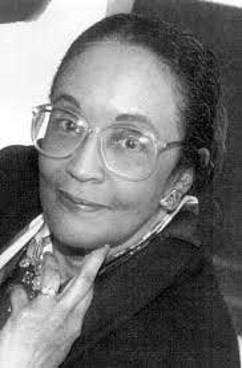 Dr. Audrey Smedley (1930-2020) was a pioneering anthropologist whose work on the history of the concept of “race” earned multiple awards and helped shape the treatment of race in academic institutions, such as the American Anthropological Association. "Smedley’s major contribution to the social sciences and society is her classic textbook, Race in North America: Origin and Evolution of a Worldview (1993), in which she showed how folk culture popularized race while science, through white power and privilege, gave the social construct authority. Because of the significance of this award-winning book, the American Anthropological Association (AAA) asked her to prepare its official 1998 statement on race, and in 2006 she was a consultant on the AAA’s initiative, “Understanding Race and Human Variability: A Public Education Program.” She was also featured in the influential PBS documentary series, Race: The Power of an Illusion (2003)." Read more on the American Anthropological Association website
Dr. Audrey Smedley (1930-2020) was a pioneering anthropologist whose work on the history of the concept of “race” earned multiple awards and helped shape the treatment of race in academic institutions, such as the American Anthropological Association. "Smedley’s major contribution to the social sciences and society is her classic textbook, Race in North America: Origin and Evolution of a Worldview (1993), in which she showed how folk culture popularized race while science, through white power and privilege, gave the social construct authority. Because of the significance of this award-winning book, the American Anthropological Association (AAA) asked her to prepare its official 1998 statement on race, and in 2006 she was a consultant on the AAA’s initiative, “Understanding Race and Human Variability: A Public Education Program.” She was also featured in the influential PBS documentary series, Race: The Power of an Illusion (2003)." Read more on the American Anthropological Association website
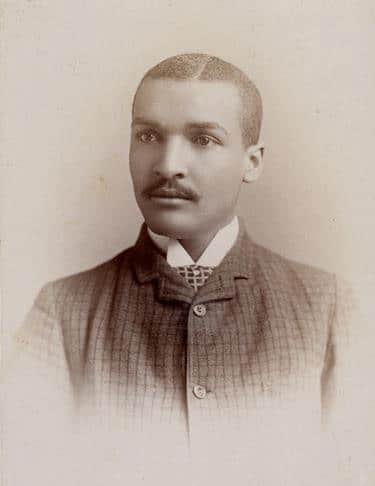 "Dr. John Wesley Gilbert (1864-1923) was a classical scholar who was the first African-American archaeologist. Gilbert discovered the ancient Greek city, Eretria, and produced the first map of the ancient structure. He was also the first graduate of Paine College, the first African-American professor of that school, and the first African-American to receive a master’s degree from Brown University." Read more on the Kentake Page website
"Dr. John Wesley Gilbert (1864-1923) was a classical scholar who was the first African-American archaeologist. Gilbert discovered the ancient Greek city, Eretria, and produced the first map of the ancient structure. He was also the first graduate of Paine College, the first African-American professor of that school, and the first African-American to receive a master’s degree from Brown University." Read more on the Kentake Page website
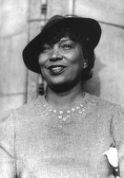 Zora Neale Hurston (1891-1960) was an American author, anthropologist and film maker. "Hurston became the most successful and most significant black woman writer of the first half of the 20th century. Over a career that spanned more than 30 years, she published four novels, two books of folklore, an autobiography, numerous short stories, and several essays, articles and plays. Her most popular novel was Their Eyes Were Watching God (1937)." While at Columbia University, she was a student of Franz Boas. Read more on the official Zora Neale Hurston website
Zora Neale Hurston (1891-1960) was an American author, anthropologist and film maker. "Hurston became the most successful and most significant black woman writer of the first half of the 20th century. Over a career that spanned more than 30 years, she published four novels, two books of folklore, an autobiography, numerous short stories, and several essays, articles and plays. Her most popular novel was Their Eyes Were Watching God (1937)." While at Columbia University, she was a student of Franz Boas. Read more on the official Zora Neale Hurston website
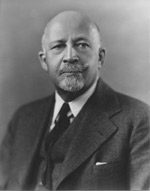 "William Edward Burghardt Du Bois (1868-1963) was an American civil rights activist, leader, Pan-Africanist, sociologist, educator, historian, writer, editor, poet, and scholar...In 1909, Du Bois was among the founders of the National Association for the Advancement of Colored People (NAACP) and from 1910 to 1934 served it as director of publicity and research, a member of the board of directors, and founder and editor of The Crisis, its monthly magazine." Read more on the NAACP website
"William Edward Burghardt Du Bois (1868-1963) was an American civil rights activist, leader, Pan-Africanist, sociologist, educator, historian, writer, editor, poet, and scholar...In 1909, Du Bois was among the founders of the National Association for the Advancement of Colored People (NAACP) and from 1910 to 1934 served it as director of publicity and research, a member of the board of directors, and founder and editor of The Crisis, its monthly magazine." Read more on the NAACP website
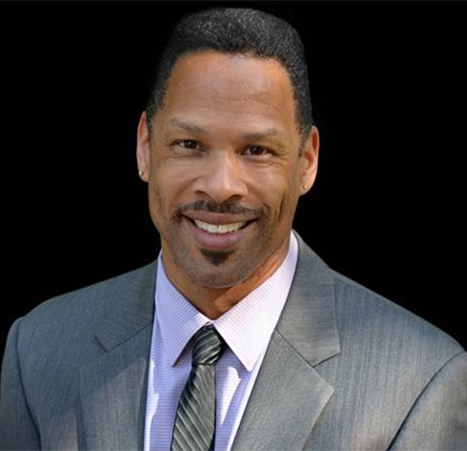 Harris D. Smith (MFA) was appointed the Dean of the UNM College of Fine Arts in June 2020. "...Smith is a product of the nationally ranked MFA Acting program at the University of Washington. He was the Chair for the Department of Theatre at the University of Utah. He also served as Director for the Johnny Carson School of Theatre and Film at the University of Nebraska. He is a Certified Teacher of stage combat through the Society of American Fight Directors and a former member of Actors Equity and SAG (Screen Actors Guild)." Upon his appointment as dean, he wrote “I am honored and excited to have been asked to serve as the Dean for the College of Fine Arts at the University of New Mexico,” said Smith. “Being a father of four Afro/LatinX children it is my goal to work with the talented faculty, staff and students of the CFA to positively impact the region, and empower all underrepresented people of the state. Additionally, I am looking forward to the CFA being an active partner in supporting the success of President Stokes’ Grand Challenge Initiative, helping make our school a destination university." Read more
Harris D. Smith (MFA) was appointed the Dean of the UNM College of Fine Arts in June 2020. "...Smith is a product of the nationally ranked MFA Acting program at the University of Washington. He was the Chair for the Department of Theatre at the University of Utah. He also served as Director for the Johnny Carson School of Theatre and Film at the University of Nebraska. He is a Certified Teacher of stage combat through the Society of American Fight Directors and a former member of Actors Equity and SAG (Screen Actors Guild)." Upon his appointment as dean, he wrote “I am honored and excited to have been asked to serve as the Dean for the College of Fine Arts at the University of New Mexico,” said Smith. “Being a father of four Afro/LatinX children it is my goal to work with the talented faculty, staff and students of the CFA to positively impact the region, and empower all underrepresented people of the state. Additionally, I am looking forward to the CFA being an active partner in supporting the success of President Stokes’ Grand Challenge Initiative, helping make our school a destination university." Read more
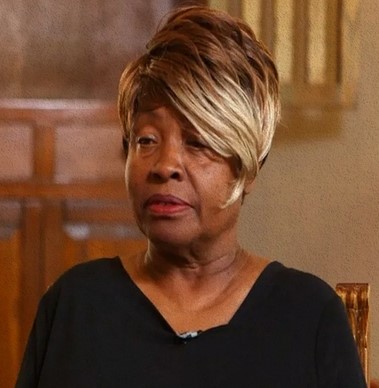 Barbara "Brown Simmons, along with a group of students at UNM helped create a Black Studies Program – a move supported by the dean of students at the time, Charles Roberts. Now known as the Africana Studies Department, it uses an interdisciplinary approach to uncover and examine the historical, political and cultural experiences of peoples of Africa and of African descent in the American Southwest, and across the globe...In May 1974, she received a Juris Doctorate from UNM’s School of Law, becoming the first black female to graduate from the law school. She was also the first black female to become a member of the New Mexico State Bar — an experience she documents in The UNM Black Alumni Chapter Oral History Project. In law school, Brown Simmons served as the Black American Law Student Association regional director, responsible for recruiting Black law students to UNM. After law school, she was a co-founder of the UNM Alumni Association Black Alumni Chapter." Learn more
Barbara "Brown Simmons, along with a group of students at UNM helped create a Black Studies Program – a move supported by the dean of students at the time, Charles Roberts. Now known as the Africana Studies Department, it uses an interdisciplinary approach to uncover and examine the historical, political and cultural experiences of peoples of Africa and of African descent in the American Southwest, and across the globe...In May 1974, she received a Juris Doctorate from UNM’s School of Law, becoming the first black female to graduate from the law school. She was also the first black female to become a member of the New Mexico State Bar — an experience she documents in The UNM Black Alumni Chapter Oral History Project. In law school, Brown Simmons served as the Black American Law Student Association regional director, responsible for recruiting Black law students to UNM. After law school, she was a co-founder of the UNM Alumni Association Black Alumni Chapter." Learn more
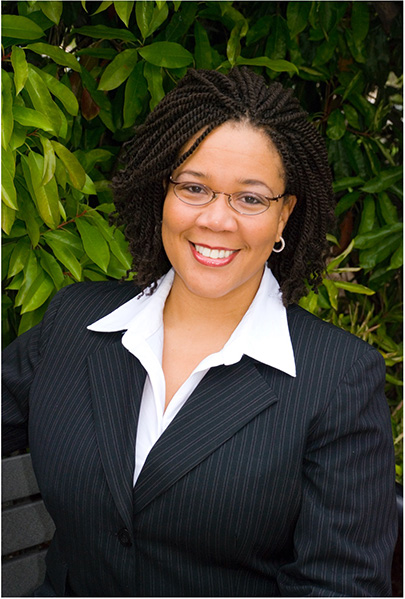 Dr. Tryphenia Peele Eady is the UNM College of Education Associate Dean for Equity, Inclusion, and Faculty, an Associate Professor in Educational Thought and Sociocultural Studies, and holds a secondary faculty appointment in the UNM Department of Anthropology. She received her PhD from Claremont Graduate University in Anthropology and Linguistics, and conducts qualitative and ethnographic research focused on the education of African American children in school and non-school community settings as well as teaching and learning practices in the African American community. Read more
Dr. Tryphenia Peele Eady is the UNM College of Education Associate Dean for Equity, Inclusion, and Faculty, an Associate Professor in Educational Thought and Sociocultural Studies, and holds a secondary faculty appointment in the UNM Department of Anthropology. She received her PhD from Claremont Graduate University in Anthropology and Linguistics, and conducts qualitative and ethnographic research focused on the education of African American children in school and non-school community settings as well as teaching and learning practices in the African American community. Read more
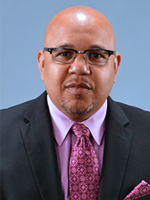 Dr. Charles E. Becknell, Jr served as the Director of the Africana Studies program at UNM. After receiving his PhD in 2008 from the UNM College of Education, he was appointed "...a Post Doctoral Diversity Fellowship at the University of New Mexico’s Division for Equity and Inclusion, which later earned him the position of Special Assistant to the Vice President for Equity and Inclusion....His leadership, teaching and research is guided by Africana Studies framework and methodology, which draws on an expressed commitment to using acquired knowledge and skills in the service of humanity. In a few words he concluded, “My teaching philosophy challenges me to continually be aware of what I am leading and teaching people to become. Ultimately, I expect those who I lead to use their acquired skills and knowledge to challenge unethical social norms.” Read more
Dr. Charles E. Becknell, Jr served as the Director of the Africana Studies program at UNM. After receiving his PhD in 2008 from the UNM College of Education, he was appointed "...a Post Doctoral Diversity Fellowship at the University of New Mexico’s Division for Equity and Inclusion, which later earned him the position of Special Assistant to the Vice President for Equity and Inclusion....His leadership, teaching and research is guided by Africana Studies framework and methodology, which draws on an expressed commitment to using acquired knowledge and skills in the service of humanity. In a few words he concluded, “My teaching philosophy challenges me to continually be aware of what I am leading and teaching people to become. Ultimately, I expect those who I lead to use their acquired skills and knowledge to challenge unethical social norms.” Read more
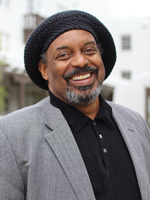 Dr. J.E. Jamal Martín joined the UNM Faculty in 2010. "His readings in the ‘black experience’ started in 1968 at the Schomburg Collection in Harlem, NYC and more extensively with postdoctoral area studies in the Africa and Middle East Reading Rooms at the U.S. Library of Congress. Alongside his complex problem solving (interdisciplinary) research and teaching interests lies African-Iberian historiography, the Moors, the ancient manuscripts of fabled Timbuktu, the study of Islam in Africa and the Americas, and Africa in antiquity. ...In short, the globalization of western educational ideologies and school organizations has racially colonized, oppressed, and exploited continental and diasporan Africans. Notably an agenda for research, policy, and practice for people of African descent means resisting ‘epistemic apartheid.’ In reality, ‘decolonization and revolutionary re-Africanization’ ought to promote the right to learn transformative knowledge and knowledge transfer for the construction of ‘shared human products’ (culture and civilization)." Read more about Dr. Martin's work
Dr. J.E. Jamal Martín joined the UNM Faculty in 2010. "His readings in the ‘black experience’ started in 1968 at the Schomburg Collection in Harlem, NYC and more extensively with postdoctoral area studies in the Africa and Middle East Reading Rooms at the U.S. Library of Congress. Alongside his complex problem solving (interdisciplinary) research and teaching interests lies African-Iberian historiography, the Moors, the ancient manuscripts of fabled Timbuktu, the study of Islam in Africa and the Americas, and Africa in antiquity. ...In short, the globalization of western educational ideologies and school organizations has racially colonized, oppressed, and exploited continental and diasporan Africans. Notably an agenda for research, policy, and practice for people of African descent means resisting ‘epistemic apartheid.’ In reality, ‘decolonization and revolutionary re-Africanization’ ought to promote the right to learn transformative knowledge and knowledge transfer for the construction of ‘shared human products’ (culture and civilization)." Read more about Dr. Martin's work
"Professor [Tiffany] Florvil is a historian of the modern and late modern period in Europe, especially social movements, gender and sexuality, emotions, and the African diaspora. Her manuscript, Both Black and German: Women and the Making of a Movement, is a cultural history of the interplay of emotions, social activism, transnational feminism, and the African/Black diaspora in Germany, in which she explores the emergence of the Black German movement of the 1980s and 1990s and traces the evolution of a Black German intellectual and activist tradition inspired by Caribbean-American feminist poet Audre Lorde. She has written several articles that revolve around the Black German movement and its transnational connections as well as gendered aspects of Black German activism. Together with Vanessa Plumly, Florvil has co-edited a volume, Rethinking Black German Studies: Approaches, Interventions and Histories with Peter Lang Press (2018)." She published Mobilizing Black Germany: Afro-German Women and the Making of a Transnational Movement in 2020. In 2022, she was a recipient of the Berlin Prize ...from the American Academy in Berlin, Germany. Learn more
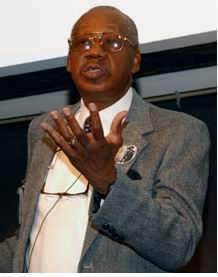 Dr. Cortez Williams (1937-2008) Professor Emeritus of African American studies at UNM, was curator for a special exhibit in the Center for Southwest Research in Zimmerman Library. The exhibit, “Blacks in the Southwest” provided stories [and original artwork] about Blacks who played instrumental roles from the time of the early explorers to contemporary society. From Sebastian Rodriguez, drummer for De Vargas, to Stagecoach Mary, the woman with the strongest right arm in the west, the exhibit provides interesting tales of adventure [and history.] Dr. Williams was vice-president of Historical Research Patrons, Inc., a New Mexico non-profit foundation that researches and promotes the history of African Americans in the western territories.” In 2019 the UNM Africana Studies program established the Cortez Williams Lecture Series in his honor.
Dr. Cortez Williams (1937-2008) Professor Emeritus of African American studies at UNM, was curator for a special exhibit in the Center for Southwest Research in Zimmerman Library. The exhibit, “Blacks in the Southwest” provided stories [and original artwork] about Blacks who played instrumental roles from the time of the early explorers to contemporary society. From Sebastian Rodriguez, drummer for De Vargas, to Stagecoach Mary, the woman with the strongest right arm in the west, the exhibit provides interesting tales of adventure [and history.] Dr. Williams was vice-president of Historical Research Patrons, Inc., a New Mexico non-profit foundation that researches and promotes the history of African Americans in the western territories.” In 2019 the UNM Africana Studies program established the Cortez Williams Lecture Series in his honor.
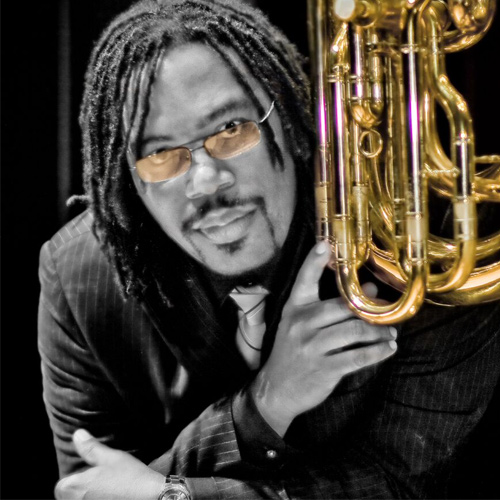 Dr. Richard White (aka R.A.W. Tuba) is Professor in the UNM Music Department, the Principal Tubist of the New Mexico Philharmonic, and Associate Director of the UNM Marching Band. "With over two decades of performing on the world’s classical music stages, tubist Richard White has matured into a musician known for his clear sound and stylistic flexibility. He began his tuba studies with Ed Goldstein at age twelve at The Baltimore School for the Performing Arts, where he graduated with honors. He then went to the Peabody Conservatory of Music to study with David Fedderly (Principal Tubist, Baltimore Symphony) where he received his Bachelor’s degree. On the advice of Mr. Fedderly, Richard traveled to Indiana University to study with the legendary Professor Daniel Perantoni. He continued his studies there receiving both his Master’s and Doctoral degrees." Visit his website to read more and learn about his award winning documentary R.A.W. Tuba
Dr. Richard White (aka R.A.W. Tuba) is Professor in the UNM Music Department, the Principal Tubist of the New Mexico Philharmonic, and Associate Director of the UNM Marching Band. "With over two decades of performing on the world’s classical music stages, tubist Richard White has matured into a musician known for his clear sound and stylistic flexibility. He began his tuba studies with Ed Goldstein at age twelve at The Baltimore School for the Performing Arts, where he graduated with honors. He then went to the Peabody Conservatory of Music to study with David Fedderly (Principal Tubist, Baltimore Symphony) where he received his Bachelor’s degree. On the advice of Mr. Fedderly, Richard traveled to Indiana University to study with the legendary Professor Daniel Perantoni. He continued his studies there receiving both his Master’s and Doctoral degrees." Visit his website to read more and learn about his award winning documentary R.A.W. Tuba
Dr. White was awarded a UNM Research and Creative Works Leadership Award in January, 2022
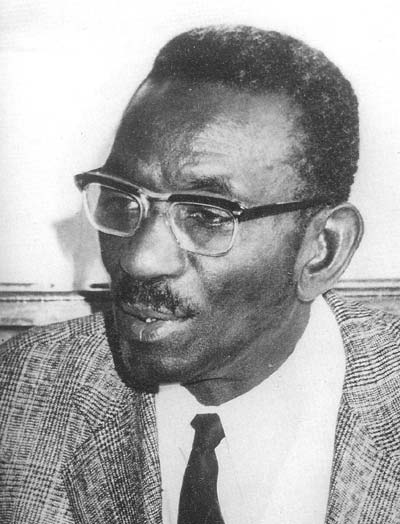 Cheikh Anta Diop (1923-1986) a distinguished African historian and anthropologist "...was [also] an avid political activist. From 1950 to 1953 he was the Secretary-General of the Rassemblement Democratique Africain (RDA) and helped establish the first Pan-African Student Congress in Paris in 1951. He also participated in the First World Congress of Black Writers and Artists held in Paris in 1956 and the second such Congress held in Rome in 1959. Upon returning to Senegal in 1960, Dr. Diop continued his research and established a radiocarbon laboratory in Dakar. In 1966, the First World Black Festival of Arts and Culture held in Dakar, Senegal honored Dr. Diop and Dr. W.E.B. Du Bois as the scholars who exerted the greatest influence on African thought in twentieth century. In 1974, a milestone occurred in the English-speaking world when the African Origin of Civilization: Myth or Reality was finally published. It was also in 1974 that Diop and Theophile Obenga collectively and soundly reaffirmed the African origin of Pharaonic Egyptian civilization at a UNESCO sponsored symposium in Cairo, Egypt. In 1981, Diop's last major work translated in English, Civilization or Barbarism: An Authentic Anthropology, was published. Cheikh Anta Diop was the Director of Radiocarbon Laboratory at the Fundamental Institute of Black Africa (IFAN) at the University of Dakar....Two years after Diop's death, Molefi Kete Asante founded the International Cheikh Anta Diop Conference in honor of Afrocentric scholarship." Read more
Cheikh Anta Diop (1923-1986) a distinguished African historian and anthropologist "...was [also] an avid political activist. From 1950 to 1953 he was the Secretary-General of the Rassemblement Democratique Africain (RDA) and helped establish the first Pan-African Student Congress in Paris in 1951. He also participated in the First World Congress of Black Writers and Artists held in Paris in 1956 and the second such Congress held in Rome in 1959. Upon returning to Senegal in 1960, Dr. Diop continued his research and established a radiocarbon laboratory in Dakar. In 1966, the First World Black Festival of Arts and Culture held in Dakar, Senegal honored Dr. Diop and Dr. W.E.B. Du Bois as the scholars who exerted the greatest influence on African thought in twentieth century. In 1974, a milestone occurred in the English-speaking world when the African Origin of Civilization: Myth or Reality was finally published. It was also in 1974 that Diop and Theophile Obenga collectively and soundly reaffirmed the African origin of Pharaonic Egyptian civilization at a UNESCO sponsored symposium in Cairo, Egypt. In 1981, Diop's last major work translated in English, Civilization or Barbarism: An Authentic Anthropology, was published. Cheikh Anta Diop was the Director of Radiocarbon Laboratory at the Fundamental Institute of Black Africa (IFAN) at the University of Dakar....Two years after Diop's death, Molefi Kete Asante founded the International Cheikh Anta Diop Conference in honor of Afrocentric scholarship." Read more
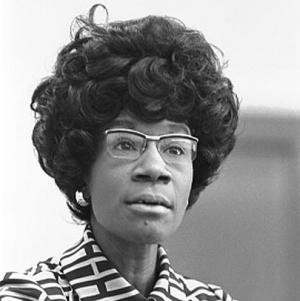 "Shirley Anita St. Hill Chisholm (1924-2005) was the first African American woman in Congress (1968) and the first woman and African American to seek the nomination for president of the United States from one of the two major political parties (1972). Her motto and title of her autobiography—Unbought and Unbossed—illustrates her outspoken advocacy for women and minorities during her seven terms in the U.S. House of Representatives." Read more at the National Women's History Museum
"Shirley Anita St. Hill Chisholm (1924-2005) was the first African American woman in Congress (1968) and the first woman and African American to seek the nomination for president of the United States from one of the two major political parties (1972). Her motto and title of her autobiography—Unbought and Unbossed—illustrates her outspoken advocacy for women and minorities during her seven terms in the U.S. House of Representatives." Read more at the National Women's History Museum
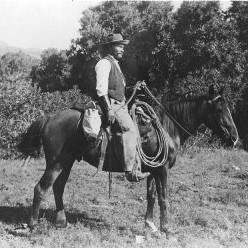 "George McJunkin was a former slave from Texas who became a bronco busting cowboy, as well as a bi-lingual ranch foreman...His intellect and drive to learn led him to make an incredible discovery that changed the world of North American archeology forever." Read more on the Archaeology Southwest website
"George McJunkin was a former slave from Texas who became a bronco busting cowboy, as well as a bi-lingual ranch foreman...His intellect and drive to learn led him to make an incredible discovery that changed the world of North American archeology forever." Read more on the Archaeology Southwest website
About Black History Month
“Those who have no record of what their forebears have accomplished lose the inspiration which comes from the teaching of biography and history.”
― Carter G. Woodson
US White House: A Proclamation on National Black History Month, 2023
 "The Library of Congress, National Archives and Records Administration, National Endowment for the Humanities, National Gallery of Art, National Park Service, Smithsonian Institution and United States Holocaust Memorial Museum join in paying tribute to the generations of African Americans who struggled with adversity to achieve full citizenship in American society. As a Harvard-trained historian, Carter G. Woodson, like W. E. B. Du Bois before him, believed that truth could not be denied and that reason would prevail over prejudice. His hopes to raise awareness of African American's contributions to civilization was realized when he and the organization he founded, the Association for the Study of Negro Life and History (ASNLH), conceived and announced Negro History Week in 1925. The event was first celebrated during a week in February 1926 that encompassed the birthdays of both Abraham Lincoln and Frederick Douglass. The response was overwhelming: Black history clubs sprang up; teachers demanded materials to instruct their pupils; and progressive whites, not simply white scholars and philanthropists, stepped forward to endorse the effort." Click here to read more about Black History Month, see online panels and discussions, exhibits, events and more
"The Library of Congress, National Archives and Records Administration, National Endowment for the Humanities, National Gallery of Art, National Park Service, Smithsonian Institution and United States Holocaust Memorial Museum join in paying tribute to the generations of African Americans who struggled with adversity to achieve full citizenship in American society. As a Harvard-trained historian, Carter G. Woodson, like W. E. B. Du Bois before him, believed that truth could not be denied and that reason would prevail over prejudice. His hopes to raise awareness of African American's contributions to civilization was realized when he and the organization he founded, the Association for the Study of Negro Life and History (ASNLH), conceived and announced Negro History Week in 1925. The event was first celebrated during a week in February 1926 that encompassed the birthdays of both Abraham Lincoln and Frederick Douglass. The response was overwhelming: Black history clubs sprang up; teachers demanded materials to instruct their pupils; and progressive whites, not simply white scholars and philanthropists, stepped forward to endorse the effort." Click here to read more about Black History Month, see online panels and discussions, exhibits, events and more
 "Black History Month is an annual celebration of achievements by African Americans and a time for recognizing their central role in U.S. history. Also known as African American History Month, the event grew out of “Negro History Week,” the brainchild of noted historian Carter G. Woodson and other prominent African Americans. Since 1976, every U.S. president has officially designated the month of February as Black History Month. Other countries around the world, including Canada and the United Kingdom, also devote a month to celebrating Black history." Read more about the origins of Black History Month on the History website
"Black History Month is an annual celebration of achievements by African Americans and a time for recognizing their central role in U.S. history. Also known as African American History Month, the event grew out of “Negro History Week,” the brainchild of noted historian Carter G. Woodson and other prominent African Americans. Since 1976, every U.S. president has officially designated the month of February as Black History Month. Other countries around the world, including Canada and the United Kingdom, also devote a month to celebrating Black history." Read more about the origins of Black History Month on the History website
(Pictured: Rosa Parks (1913-2005) helped initiate the civil rights movement in the United States and later became one of its primary organizers when she refused to give up her seat to a white man on a Montgomery , Alabama bus in 1955.)
African American History National Archives
"The National Archives holds a wealth of material documenting the African American experience and highlights these resources online, in programs, and through traditional and social media. Explore our records documenting African American History through the African American Research page and within the National Archives Catalog."
Smithsonian National Museum of African American History and Culture
"Black History Month is a time to celebrate the fullness of African American history and culture, but that cannot be contained in one month alone. Join us, the world's largest African American museum, to humanize history and objects through the lives, tragedies and triumphs of everyday people—while paying tribute to Black pioneers' trailblazing contributions....
Is Black History Month still relevant today?
Despite the profound change in race relations that has occurred in our lives, Carter G. Woodson’s vision for black history as a means of transformation and change is still quite relevant and quite useful. One thing has not changed. That is the need to draw inspiration and guidance from the past. And through that inspiration, people will find tools and paths that will help them live their lives." Learn more
BlackPast.org Offers a Variety of African American History Resources Year Round
"Every month is “Black History Month” here at BlackPast.org. Nonetheless we recognize that hundreds of thousands of our visitors specifically seek out the website for information on African American history during the month of February. We have gathered much of that data that may be helpful for teachers, students, and the general public who want to participate in the various celebrations or commemorations or who simply want to use that time to reflect on the history of black people."
PBS Showcases Rich Collection of Stories to Celebrate Black History Month
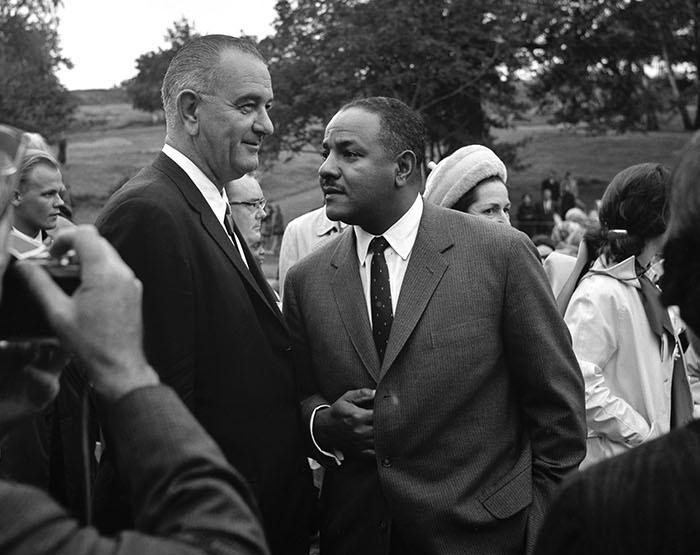 "Celebrate Black History Month this year with a closer look at the lives of various Black Americans who have made indelible marks on history with their artistry, professional achievements, and community activism. We've compiled a list of films premiering this month, as well as programs available to stream in February....PBS is celebrating Black History Month by throwing a Block Party! Throughout the month of February, stream new and beloved programs celebrating Black excellence. Whether it’s history, music, documentaries, science or genealogy, PBS is your destination. Join the party at pbs.org/blockparty" Learn more
"Celebrate Black History Month this year with a closer look at the lives of various Black Americans who have made indelible marks on history with their artistry, professional achievements, and community activism. We've compiled a list of films premiering this month, as well as programs available to stream in February....PBS is celebrating Black History Month by throwing a Block Party! Throughout the month of February, stream new and beloved programs celebrating Black excellence. Whether it’s history, music, documentaries, science or genealogy, PBS is your destination. Join the party at pbs.org/blockparty" Learn more
Research
UNM Black Alumni Oral History Project, Center for Southwest Research
Read about the American Anthropological Association's Understanding Race Project
New Mexico State Library Blackdom, NM: General Resources
Transforming Anthropology, the flagship journal for the Association of Black Anthropologists
NAACP Civil Rights Leaders
Women in the Civil Rights Movement Historic Context and Listening Guidance (African American Civil Rights Network)
Race: The Power of an Illusion
Read about The Double V Campaign (1942-1945)
The Harlem Renaissance
Tuskegee Airmen United States Military Unit
Grant Chapel AME Church is the oldest Black church in New Mexico
Innovative Lives: Lewis Latimer (1848-1928): Renaissance Man
Hidden Figures: The Story of NASA's Black Women Mathematicians Dorothy Vaughan, Mary Jackson, Katherine Johnson and Christine Darden
These 19 Black Women Fought for Voting Rights
Black History: The Civil Rights Movement
Timeline: African American Civil Rights Movement
30 Civil Rights Leaders of the Past and Present
NAACP: Civil Rights Leaders
15 Black Women Civil Rights Leaders You May Not Have Heard Of
Women in the Civil Rights Movement Historic Context Statement and AACRN Listing Guidance (African American Civil Rights Network)
The Student Nonviolent Coordinating Committee (SNCC)
Black History Timeline: 1700 - 1799
Black History Timeline: 1970–1979
Black History Timeline: 1980–1989
16 Queer Black Trailblazers Who Made History
Notable African Americans Who Helped Change the World
5 Black Canadian Leaders Who Inspired a Generation
News
Student Activism, the NAACP, and the Albuquerque City Anti-Discrimination Ordinance, 1947-1952
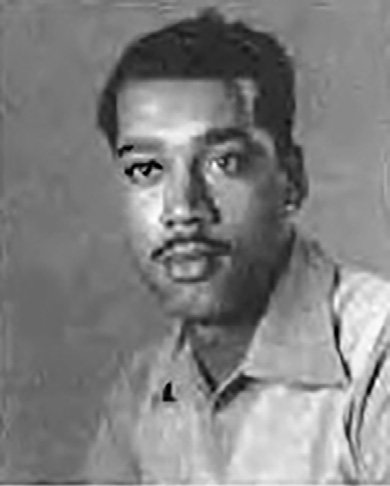 "On 12 September 1947, George Long, an African American student at the University of New Mexico, was refused service at Oklahoma Joe’s café in Albuquerque and sparked a boycott of local businesses that did not serve racial minorities. The boycott began a five-year campaign that resulted in 1952 in the passage of the Albuquerque City Anti-Discrimination Ordinance, which outlawed racial discrimination in the city. The victory was secured through a combination of student activism, National Association for the Advancement of Colored People (NAACP) branch involvement, and broad community participation, including the cooperation of white civic leaders and Hispanics....The New Mexico state legislature, with a realistic and practical template to follow, passed an antidiscrimination law similar to the Albuquerque ordinance in 1955 to cover the entire state." Read more about this historic achievement
"On 12 September 1947, George Long, an African American student at the University of New Mexico, was refused service at Oklahoma Joe’s café in Albuquerque and sparked a boycott of local businesses that did not serve racial minorities. The boycott began a five-year campaign that resulted in 1952 in the passage of the Albuquerque City Anti-Discrimination Ordinance, which outlawed racial discrimination in the city. The victory was secured through a combination of student activism, National Association for the Advancement of Colored People (NAACP) branch involvement, and broad community participation, including the cooperation of white civic leaders and Hispanics....The New Mexico state legislature, with a realistic and practical template to follow, passed an antidiscrimination law similar to the Albuquerque ordinance in 1955 to cover the entire state." Read more about this historic achievement
